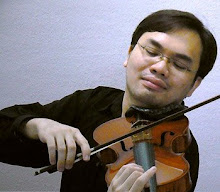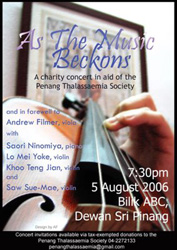Not too long ago, one of the campus newspapers, the IUSB Vision, put forward a controversial editorial asking whether ignorant people should be allowed to vote. It's been an idea I've been fond of for some time, especially when you see how waves of rural uneducated voters of any country are so easily swayed to one side or the other without taking the time to look at the whole picture objectively.
There are of course problems with the idea - the one that comes to my mind the quickest is that if political awareness is a criteria for eligibility, then it logically makes sense that a scale exists which provides higher voting power to people who keep themselves better in the know. Or to cut it short: political science professors should have a hundred times more voting weight than the voter who doesn't even know the name of the candidate. This becomes a situation which doesn't carry democratic credentials - reminding us that a democracy places above all else the voice of the majority of the people, not the majority of the IQ.
As Winston Churchill famously said, "Democracy is the worst form of government, except for all those other forms that have been tried from time to time."
A counterargument can be made when we consider the eligibility test for those seeking American citizenship - basically making civic knowledge a prerequisite to gaining the right to vote. The reason why those born in the country do not require the same test is an presumption that the education system through subjects like social science, as well as involvement in the community as a whole, gives enough knowledge to make up for this prerequisite. But if you ever should be interested to put this to the test, just ask the next American you meet if he or she knows which US President served more than two terms.
As Malaysia goes to the polls, and I get back to reading some of the press, I once again have to ask myself whether it's healthy for some of these people to be ticking any box that doesn't commit themselves to a repeat of kindergarten education. Case in point: "Of hearts and minds" in The Star Online, where people of all political stripes show just how ignorant they are of the process they take such pride in participating. The article is basically a collection of two dozen selected viewpoints of the so-called "person on the street".
We start with the incumbents:
"I always vote for the Government. It is my way of expressing my gratitude."
– Minah Taib
First of all, unless there's an adjacent Malaysian Idol competition, everyone who goes to the polls is voting to elect our government. The question really is which to which party you're casting your vote. Plus, as I understand it, Parliament is dissolved and thus there is no real existing government you can vote for. You can't vote for a caretaker government And as for gratitude - I know this must be news to many, but your elected official does get compensation for his or her work. It's called a salary. And then some.
On to the opposing side:
"I have been a hardcore DAP supporter for the past 30 years, so it will be no different this election."
- K. Jayamohan
The key word here is "so", indicating that this person's rationale for voting is simply because of what he's used to doing. Being a supporter of a minority Opposition party, this brings forward two problems: 1. If everyone followed his rationale, his party would never win. 2. The DAP's new election motto is "Just change it". Now tell me, which box do I check for irony?
And while we're on the topic, what's up with this Americanization of Malaysian politics? The DAP's campaign slogan is a combination of Obama's "Change we can be believe in" and Coke's "Just do it." The Star's phrase of "hearts and minds" came from the original Iraq war campaign. And in the other lane, Obama's "Yes we can" smells suspiciously of "Malaysia Boleh".
Back to the voters. Even the undecideds annoy me:
"I am quite excited and will have to think very, very carefully on which party can look after the welfare of ordinary people like me. I will probably only decide on whom to vote for when I am inside the cubicle with a pencil in my hand."
–K. Shanthi
The point of thinking very, very carefully is to come to a very, very informed opinion. If you can't come to that conclusion, what makes you think your a pencil in your hand will make you make a right decision?
Of course it's easier to criticize than to have an opinion, and I'm thus charged with providing one. I confess, I've been keen about the idea of "undi rosak" - the "spoiled vote" that generally indicates a confused voter who does not know not to check more than one box. Think about it - if your political opinion is that both or all of the candidates are not up to the mark, how do you indicate it? We don't have the Thai system whereby if there isn't a quorum, the lack of public confidence renders the election invalid - an excellent idea, in my opinion. A spoiled vote can serve to mean a vote of no confidence in the slate of candidates - a different deal than just not voting in the existing system, because your spoiled vote goes to weaken the eventual winning percentage and in turn weakening the position of "I have the mandate of the people and I can do what I want."
When I mentioned this train of thought to one of my good friends here, there was a moment's pause. Followed by, "That's the dumbest idea I've ever heard about voting."
And in all fairness, can't say she doesn't have a point.
Wednesday, February 20, 2008
Subscribe to:
Post Comments (Atom)






No comments:
Post a Comment